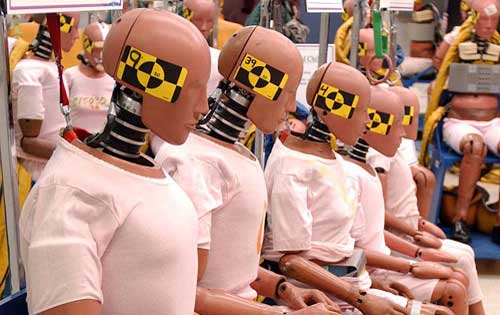Robots can handle driving and assembly-line work better than we can, with far less error and far more accuracy, no doubt. The question, beyond the loss of manufacturing jobs, is whether these tasks, once roboticized, can be hacked to cause mass mishaps. Will 10,000 drivers simultaneously be forced to turn left instead of right? Can terrorists cause a defect in plane parts so that they’ll be prone to crash? I would guess there’s enough quality control to avoid the latter, but the former seems plausible. From “Skilled Work, Without the Worker,” by John Markhoff in the New York Times:
“This is the future. A new wave of robots, far more adept than those now commonly used by automakers and other heavy manufacturers, are replacing workers around the world in both manufacturing and distribution. Factories like the one here in the Netherlands are a striking counterpoint to those used by Apple and other consumer electronics giants, which employ hundreds of thousands of low-skilled workers.
‘With these machines, we can make any consumer device in the world,’ said Binne Visser, an electrical engineer who manages the Philips assembly line in Drachten.”
Tags: Binne Visser, John Markhoff

